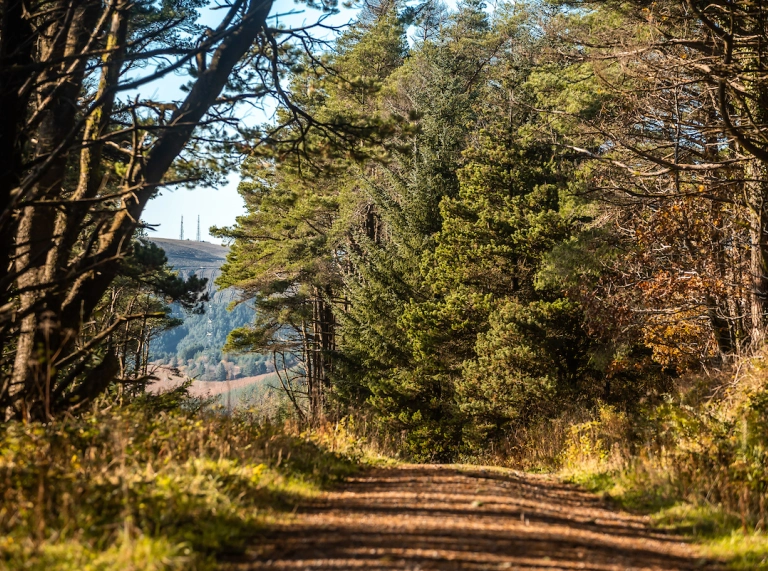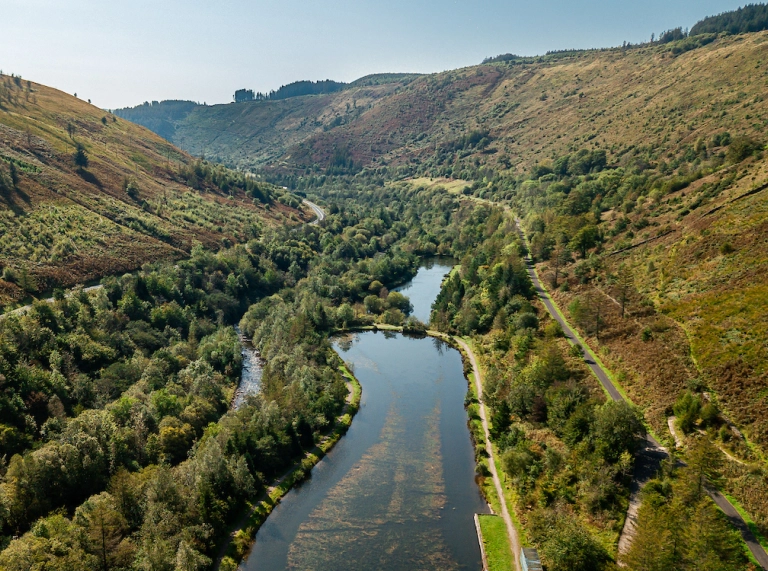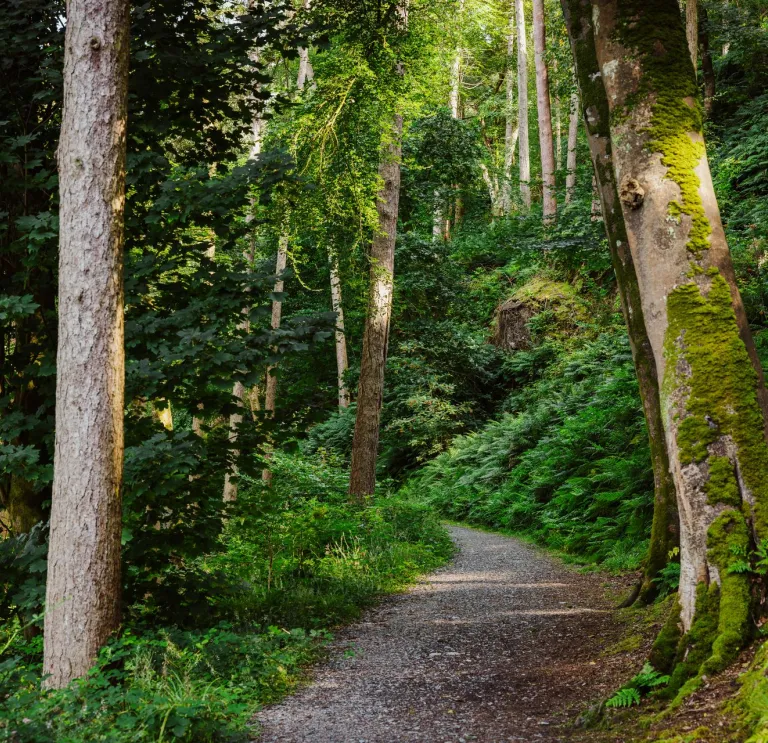Both nations have rich histories and traditions tied to their woodlands, valuing forests not only for their natural beauty but also for their spiritual and ecological importance.
One man did more than any to make these links stronger than just a shared outlook. Born in Neath in the Welsh Valleys in 1940, C.W. Nicol lived an extraordinary life which saw him become a Japanese citizen and dedicate his life to preserving Japan's forests, drawing on his Welsh roots for inspiration.
Nicol’s most celebrated project was his reforesting efforts in the Nagano region, where he transformed a neglected woodland near his home into a national park he named Afan Argoed (Valley of Woods) in a nod to his Welsh heritage and as a thank you to the UK's Forestry Commission for ‘looking after trees in Wales’.
The author went on to set up the Afan Woodland Trust, a Japanese foundation dedicated to restoring and expanding Japan’s native forests and biodiversity to benefit future generations, much like the goals of Wales’ national forest. He returned to Wales to twin his new forest with Afan Forest Park near Cymmer, Neath Port Talbot, where he expressed his hope to forge more links between the land of his birth - Wales - and the land of his citizenship - Japan.


But why were forests the focus of an ex-pat Welshman in Japan? Well, with more than half of its geography covered by woodland, including many national parks and UNESCO World Heritage Sites, Japan is a country rich in forests.
Forests hold a special spiritual significance for the Japanese people and have played a key role in shaping the nation's heritage, traditions and economy. In Shinto, Japan’s indigenous religion, it is believed that the spirits of ancestors inhabit trees and should therefore be respected. Central to Japanese culture is a focus on finding a balance between economic development and environmental protection, ensuring people coexist with nature.
The Japanese view that nature benefits the mind, body and soul is one that is also shared in Wales. In fact, it has been one of the driving forces behind the National Forest for Wales - a forestation drive by the Welsh Government born out of a desire to tackle climate change, support communities, and improve the health and wellbeing of Wales' population.
The project aims to create a continuous network of forests across the country to help protect nature and address biodiversity loss. The goal is to safeguard existing ancient Welsh woodlands while developing new forest areas. Long term, it is hoped that humans and animals will be able to walk the length and breadth of Wales through woods alone.

Alongside this initiative, the Welsh Government has also unveiled the Woodland Investment Grant, providing financial support to landowners and managers to create new woodlands and make improvements to existing ones.
Across Japan a number of people and organisations are similarly working to revitalise and protect the country’s green spaces. The Japanese tradition of Shinrin-yoku, also known as forest bathing – shares links with Wales. The simple, therapeutic act of spending time in a natural atmosphere and connecting with it on a sensory and mindful level, forest bathing is believed to be good for mental and physical wellbeing. It bears similarities with the Welsh proverb “dod yn ôl at fy nghoed” which translates to “come back to my trees,” which is based on the idea that nature is critical for a healthy mind and body.
Welsh author and environmental advocate, Matthew Yeomans, touched on the topic of forest bathing in his book, Return to My Trees, which documented his walking adventures through Wales’ forests, exploring how people have lost their connection to nature and how we go about rebuilding it.
Nowadays, forest bathing experiences are available all over Wales - from an eco-retreat in Tintern offering unique immersive experiences overlooking The Wye Valley, to a programme offering an introduction to the principles and research behind Shinrin Yoku in Chepstow.
At the 2025 Osaka Expo, attendees will get a glimpse into forest bathing as there will be a dedicated “Forest of Tranquillity” which will serve as a space for visitors to experience a moment of calm away from the event’s bustling atmosphere.
By drawing inspiration from each other’s unique approaches to forest conservation and wellbeing, Wales and Japan are leading by example, proving that forests are far more than just landscapes – they are vital lifelines that sustain both nature and humanity. As green initiatives continue to grow in both countries, the hope is that other nations will also be inspired to embrace the healing powers of nature, fostering a more sustainable and harmonious world for future generations. C.W. Nicol would be proud of the acorn he planted is bearing fruit.



